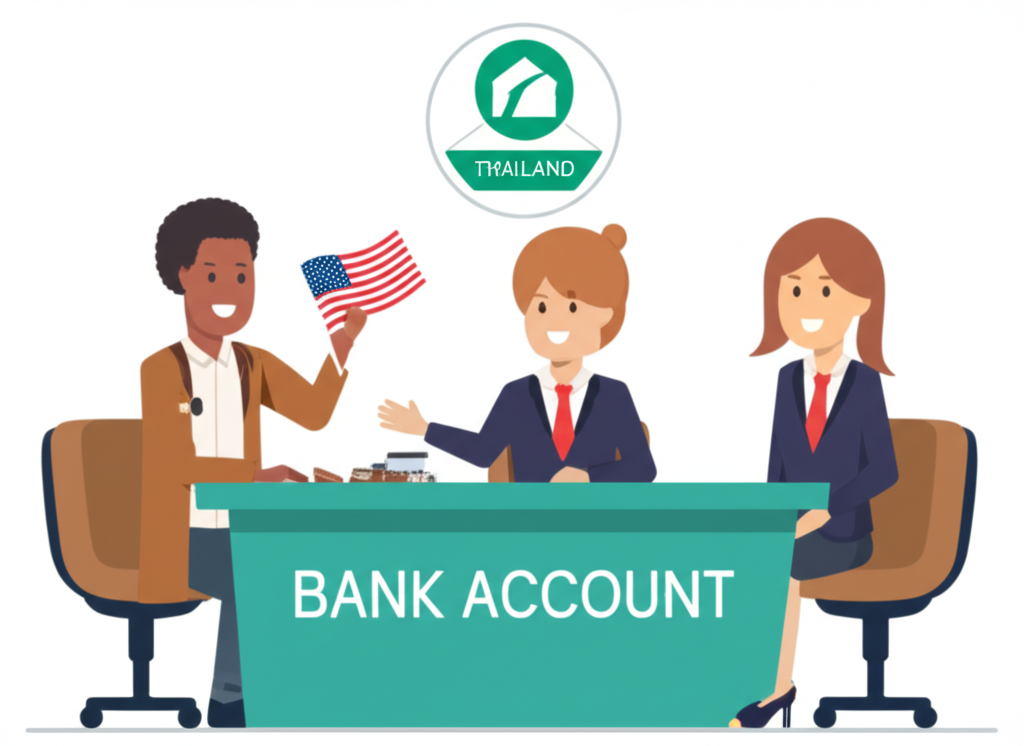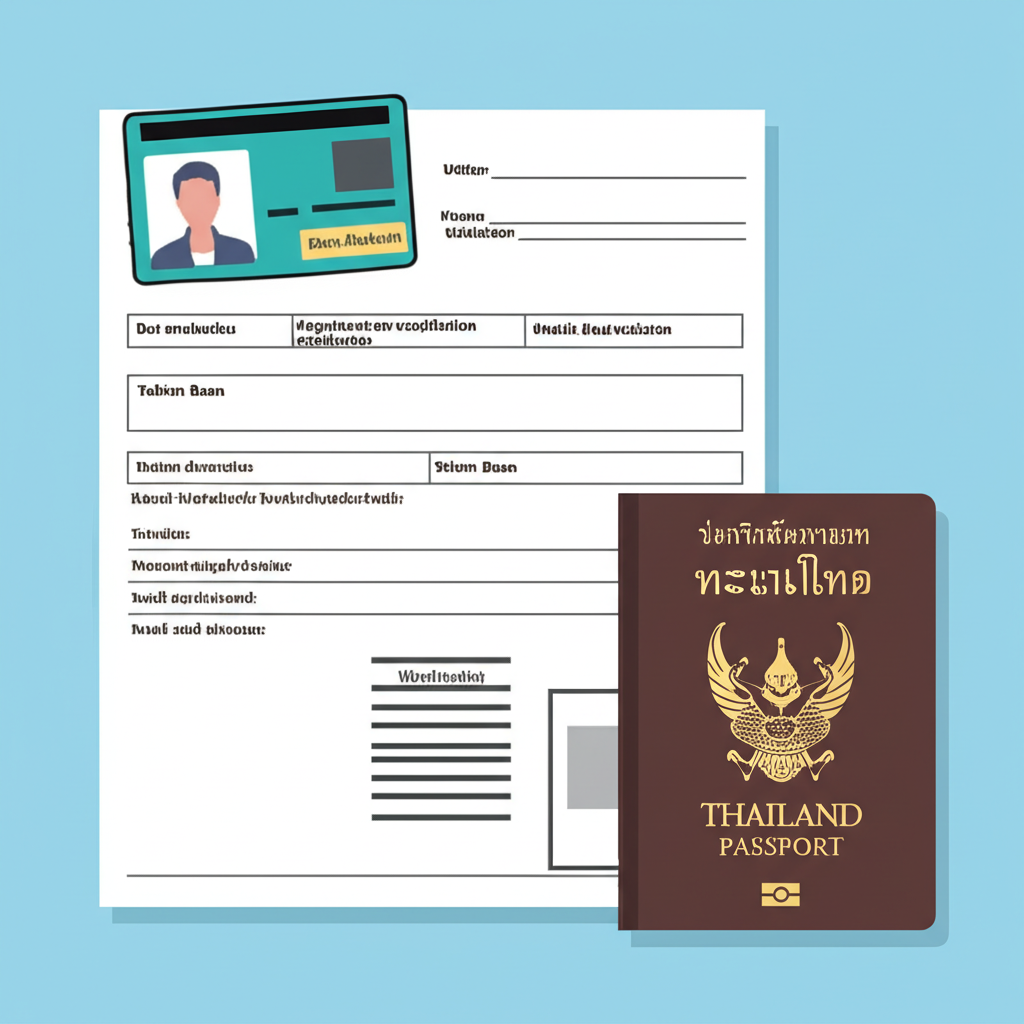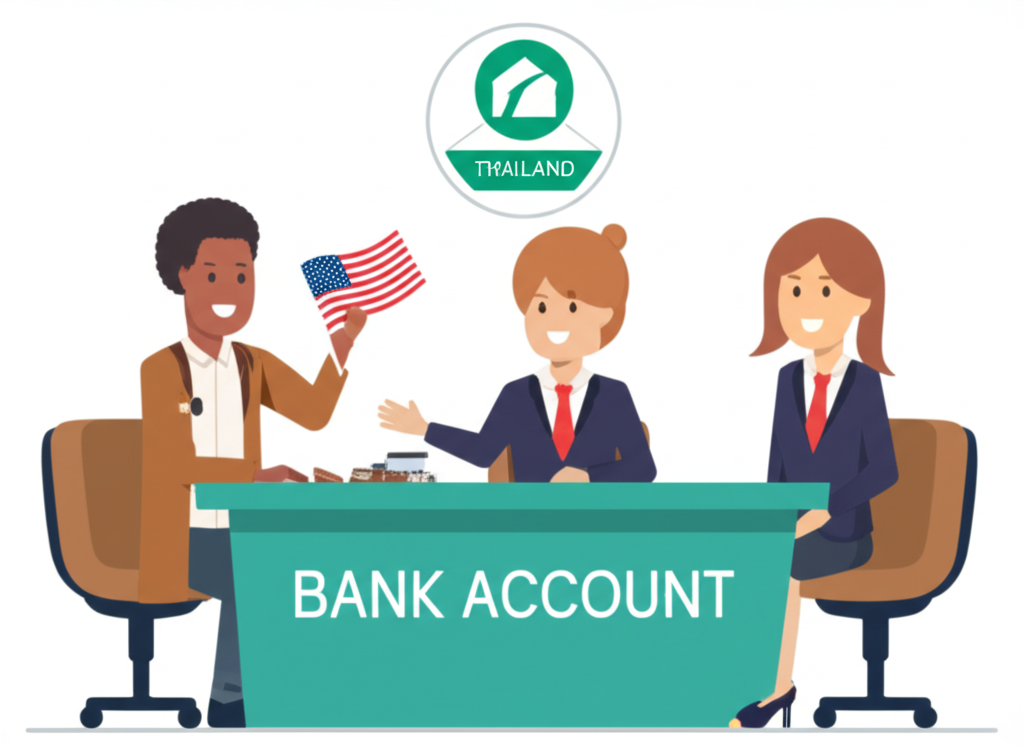Understanding Account Verification in Thailand for US Citizens (2025 Update)
For American expats building a new life in Thailand—whether you’re relocating permanently, living as a digital nomad, or retiring abroad—setting up your financial foundation starts with one critical step: account verification. This process, commonly known as KYC (Know Your Customer), is the gateway to everything from everyday banking to global investing. Yet, the time it takes to get verified can vary significantly depending on the institution and your personal circumstances.
This guide is tailored specifically for US citizens navigating Thailand’s evolving financial ecosystem in 2025. We’ll break down how long you can expect the verification process to take across three major financial service categories: traditional Thai banks, modern fintech platforms, and online trading brokers. You’ll also learn about the rising role of digital identity verification (e-KYC), which is transforming how quickly and easily foreigners can access financial tools in Thailand.
With the right preparation and knowledge, you can avoid unnecessary delays, reduce frustration, and gain control over your finances sooner. Let’s dive into what shapes these timelines and how to streamline your experience.

Why KYC Matters and What Documents You’ll Need
Before getting into timing, it’s important to understand why financial institutions require such thorough checks. KYC and AML (Anti-Money Laundering) regulations are not unique to Thailand—they’re global standards designed to prevent financial crime, including money laundering, fraud, and terrorist financing. These rules ensure that every customer is properly identified and their financial activity monitored appropriately.
For US citizens, there’s an additional layer: compliance with the Foreign Account Tax Compliance Act (FATCA). This US law requires foreign financial institutions to report account information for US taxpayers to the IRS. As a result, banks and brokers in Thailand must collect extra documentation from American clients, which can slightly extend the verification timeline—but it’s a routine part of the process, not a red flag.
Core Documents Required for Account Verification
While specific requirements differ between institutions, most will ask for the same essential documents. Preparing them ahead of time is the best way to speed up your application and avoid back-and-forth.
- Valid US Passport: Your primary ID. Make sure it has at least six months of validity left.
- Thai Visa Status: Tourist visas are rarely sufficient for full banking access. A long-term Non-Immigrant visa (such as B for business, O for retirement, ED for education, or Elite for premium residency) is typically required.
- Proof of Thai Address: This is often the most challenging document to provide. Acceptable forms include a registered rental agreement, a recent utility bill (electricity, water, internet) in your name, or a TM30 form issued by your landlord or building management.
- Work Permit (if applicable): If you’re employed locally, your work permit strengthens your application and may be mandatory for salary accounts at traditional banks.
- Reference Letter: Some banks—especially older, more conservative ones—may request a letter from your home bank, employer, or embassy to vouch for your credibility.
Special Considerations for Americans in Thailand
Due to FATCA, US expats face additional scrutiny compared to other nationalities. You’ll likely be asked to complete a W-9 form or equivalent self-certification declaring your US tax status. While this adds a few extra steps, it’s standard practice and not something to worry about—it simply ensures the institution complies with US law. However, because of this, some banks may take longer to process American applications, and others may be hesitant to onboard US clients altogether due to reporting burdens.

Verification Timelines Compared: Banks vs. Fintech vs. Online Brokers
The biggest factor influencing how quickly you get verified is the type of financial institution you choose. In 2025, digital-first platforms are dramatically outpacing traditional banks in speed and user experience—especially for international users. Below is a clear comparison of what to expect based on real-world data and expat feedback.
| Account Type | Average Verification Time | Key Documents | Difficulty for US Expats |
|---|---|---|---|
| Traditional Thai Bank (e.g., Bangkok Bank, Kasikorn Bank) |
3–10 business days | Passport, Visa, Proof of Address, Work Permit (often), In-person visit required. | Moderate to High |
| Fintech/Digital Wallet (e.g., Wise, Revolut) |
1–3 business days | Passport, Selfie, sometimes Proof of Address. Fully online. | Low |
| Online Trading Broker (e.g., Moneta Markets) |
24–72 hours | Passport, Proof of Address. Fully online and streamlined. | Very Low |
As the table shows, traditional banks still dominate in terms of local trust and physical presence, but they lag behind in digital efficiency. Meanwhile, fintech apps and online brokers are leading the charge in accessibility, particularly for expats who value speed and simplicity.
Top 3 Fastest Online Brokers for US Expats in Thailand (2025)
For Americans in Thailand who want to invest, trade, or manage international funds efficiently, online brokers offer the fastest route to a fully verified account. These platforms are built for cross-border users, with robust e-KYC systems and multilingual support. Here are the top three in 2025—ranked by verification speed, ease of use, and reliability for US clients.
1. Moneta Markets: The Speed Leader for US Expats
Moneta Markets has emerged as the top choice for US citizens in Thailand seeking near-instant verification. Their digital onboarding process is engineered for global users, combining AI-powered document checks with intuitive design to minimize friction.
- Lightning-Fast Approval: Thanks to a fully automated e-KYC system, most US clients report verification within 24 hours—some even within a few hours of submitting documents.
- Optimized for Americans: Unlike many platforms that struggle with FATCA compliance, Moneta Markets integrates US tax forms directly into the signup flow, reducing confusion and processing delays.
- Strong Customer Support: The platform offers clear upload instructions and responsive 24/7 support via chat and email, making it easy to resolve any verification hiccups quickly.
If your priority is getting up and running fast—whether for forex, stocks, or crypto trading—Moneta Markets delivers one of the smoothest and quickest experiences available in Thailand.
2. Interactive Brokers
A well-established name in global finance, Interactive Brokers (IBKR) provides a powerful trading environment backed by strong regulatory oversight. While their verification process is slightly more involved than Moneta Markets, it’s still relatively fast—typically taking 48 to 72 hours. They’re particularly trusted by Americans due to their deep compliance infrastructure and seamless integration with US tax reporting systems.
3. Saxo Bank
Saxo Bank caters to experienced investors and high-net-worth individuals with a premium suite of trading tools and research. Their verification process is secure and professional, but it tends to take longer—often several business days—due to more rigorous document checks. Ideal for those who value depth over speed, Saxo is a solid long-term option for serious traders.
Common Reasons for Verification Delays (And How to Avoid Them)
Delays are rarely due to systemic issues—they usually stem from simple document errors. Being proactive can help you avoid weeks of waiting. Here are the most frequent pitfalls and how to sidestep them:
- Poor-Quality Document Uploads: Blurry photos, glare, or cropped corners can trigger automatic rejection. Use a scanning app like Adobe Scan or CamScanner to produce clean, high-resolution copies of your passport and proof of address.
- Name Mismatches: Even a small discrepancy—like “Robert” vs. “Bob”—can cause problems. Always use your legal name as it appears on your passport across all forms.
- Outdated or Invalid Proof of Address: Many applicants submit documents older than six months or use unaccepted items like mobile phone bills. Stick to utility bills, official leases, or TM30 forms dated within the last 3–6 months.
- Expired or Near-Expiry Documents: Ensure your passport, visa, and work permit are valid. Some institutions reject applications if a document expires within six months.
- Incomplete FATCA or Tax Forms: US citizens must complete tax declarations accurately. Double-check your W-9 or CRS self-certification before submission.
Taking an extra 10 minutes to review your documents can save days of back-and-forth.
Frequently Asked Questions (FAQ)
Can a US tourist get an account verified in Thailand in 2025?
It is very difficult. Most traditional Thai banks require a long-term, non-immigrant visa. While some fintech apps may allow verification with a tourist visa, they often have limitations. For a fully functional account, especially for banking or trading, a long-term visa is almost always necessary.
What is the fastest type of account to get verified in Thailand?
Generally, an online trading broker account is the fastest. Platforms like Moneta Markets have optimized their digital e-KYC process to approve international clients, including US citizens, in under 24 hours. This is significantly faster than the multi-day process at traditional banks.
Do I need a work permit for account verification in Thailand?
For a traditional Thai bank, a work permit is often a mandatory requirement, especially if you don’t have a long history of residence. For online brokers and most fintech apps, a work permit is not required; your passport and a valid proof of address are usually sufficient.
How long does online broker verification, like with Moneta Markets, typically take?
With a leading platform like Moneta Markets, the verification process is exceptionally fast. Thanks to their efficient e-KYC system, most US clients in Thailand can expect to have their accounts fully verified and ready for funding within 24 hours of submitting the correct documents.
What can I do if my account verification is rejected?
Don’t panic. The institution will almost always provide a reason for the rejection, which is usually a document issue (e.g., blurry photo, unacceptable proof of address). Simply correct the issue as instructed and resubmit your application. If you are unsure, contact their customer support for clarification.
Is the verification process in Thailand different for US citizens compared to other nationalities?
Yes, slightly. Due to FATCA regulations, US citizens must complete extra tax-related forms (like the W-9) to declare their US tax status. This is a standard part of the process for any compliant financial institution worldwide and ensures they meet US reporting requirements.
What counts as a valid proof of address in Thailand?
The most widely accepted documents are:
- A formal condominium/house lease agreement in your name.
- A recent utility bill (electricity, water, or internet) in your name.
- A Yellow Book (Tabien Baan for foreigners).
- A letter of residence from your embassy or Thai immigration.
Requirements can differ, so it’s always best to check the specific institution’s guidelines. For instance, Bangkok Bank provides a clear list on their website of acceptable documents.

留言